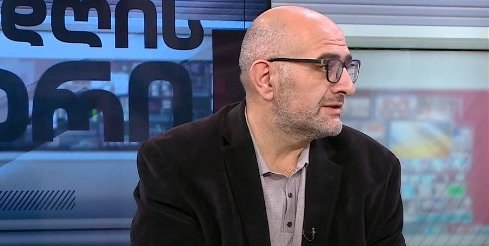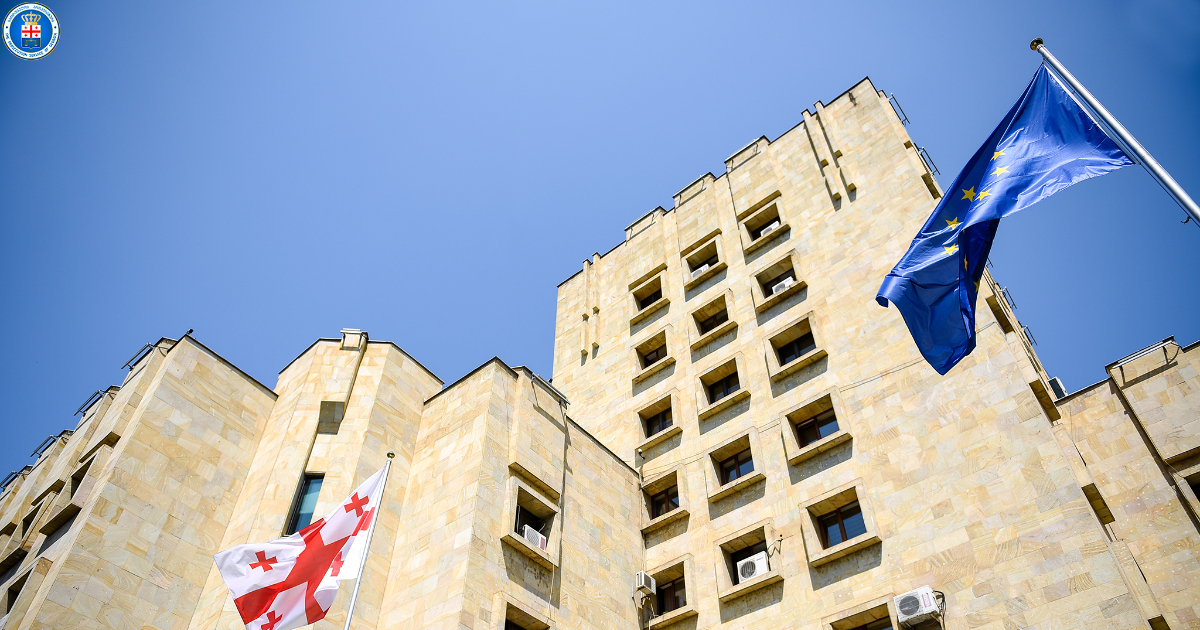Colonel Lasha Beridze: If Zelenskyy is no longer in power, it will be victory for Russia, while Americans see him as obstacle

Author
Front News Georgia
The ongoing tension between US President Donald Trump and Ukrainian President Volodymyr Zelenskyy remains a topic of discussion. The world is puzzled over Trump’s rhetoric and its true objective, which has drawn sharp criticism from allies. Currently, all eyes are on two major upcoming meetings: one between Trump and Russian President Vladimir Putin, expected to take place at the end of the month, and another involving Trump, French President Emmanuel Macron, and British Prime Minister Keir Starmer, scheduled for next week.
What expectations are there following these meetings, and how has Trump’s new foreign policy shaped the geopolitical landscape? Is he planning to make maximum concessions to Russia in exchange for ending the war in Ukraine? Front News discussed these issues with Colonel Lasha Beridze.
– A meeting between US President Donald Trump and Russian President Vladimir Putin is expected at the end of the month. What conclusions can be drawn based on Trump’s statements about Ukrainian President Volodymyr Zelenskyy? Before this meeting, what possible outlines of negotiations can be seen? Is the new US administration pressuring Ukraine to achieve a result favorable to Russia?
– It has become increasingly difficult to distinguish between political populism and reality in this chaotic situation. It is also unclear what strategic moves lie behind Trump’s statements. However, we must reason and analyze what is realistically achievable. At this stage, negotiations on a ceasefire seem possible. But why would Putin’s regime agree to this when it does not operate as a rational player?
Trump’s administration wants to establish peace and portray it as a victory. However, there is a fundamental issue: whether Zelenskyy remains in power or not, Ukraine will never legally recognize the territories occupied by Russia.
This creates a deadlock because if Putin does not get legal recognition of these territories, he has no other interest—this is the sole reason he invaded Ukraine. Negotiations are stuck in this position. Every time a meeting takes place, like the upcoming Trump-Putin talks, secret backchannel negotiations are already ongoing. Some outlines have emerged from these discussions. So far, Trump has essentially echoed the Kremlin’s stance—what Russia wants. The US has not clearly stated its position yet.
The situation is even more serious because Trump cannot simply cut off aid to Ukraine. What we see now is mainly a clash between Trump and US allies. Trump is demanding that Europe completely submit to his leadership. The real question is not just about Ukraine’s fate but also the future of transatlantic relations. Trump’s rhetoric has already created significant cracks in US-European relations. Unfortunately, there is even the possibility that European leaders—if backed into a corner—may choose to compromise with Trump themselves, although this is unlikely at this point.
– You mentioned that the US is currently voicing Russia’s position. Do you think the push for elections in Ukraine, as well as labeling Zelenskyy as a dictator and illegitimate leader, is a coordinated effort between the US and Russia? Does this mean they both want to remove Zelenskyy from power?
– I believe this is not a formal agreement but rather a convergence of interests. If Zelenskyy, who has emerged as a strong leader, is removed, it will be a victory for Russia. At the same time, Zelenskyy is an obstacle for the Americans because he does not allow them to dictate terms as they wish. Holding new elections in Ukraine is seen as a way to weaken Zelenskyy’s mandate or possibly remove him entirely, under the assumption that he might lose. However, the way this demand is being presented—so aggressively—is unlikely to be a successful approach. The modern world is far more complex than that, and such a maneuver would not be easy to execute.
– Do you think Trump’s frustration with Zelenskyy is also connected to the issue of natural resource extraction? The US is reportedly demanding 50% access to Ukraine’s valuable minerals, and Trump claimed that one of his officials was denied a meeting with Zelenskyy to finalize the deal. Zelenskyy, on the other hand, argues that the US is offering no real security guarantees in exchange for Ukraine’s $500 billion worth of mineral wealth. Trump also suggested corruption was involved, mentioning that Ukraine had already received $350 billion from the US.
– Trump is trying to show the American public that he is making financially beneficial deals and is not handing out money for free. However, the way he is approaching this issue and the form his rhetoric has taken are not strategically sound.
Through these statements, Trump has essentially signaled to the world that the traditional American foreign policy—based on soft power—is gone. This means that the US is losing allies across the globe.
During his previous presidency, Trump attempted to establish relations with North Korean leader Kim Jong Un. However, his approach created serious distrust toward his administration, even among the US allies. As a result, South Korea began strengthening ties with China and Russia instead of relying solely on the US.
Trump’s current approach is similar—he risks alienating key allies, especially in Europe. I believe that once the dust settles, many things will become clearer. If the US abandons Ukraine and allows it to be defeated, that will be a geopolitical defeat for the US itself. I think Trump fully understands this, which is why I doubt all his statements will translate into actual policies. However, he will certainly try to shift more responsibility onto European nations. This is almost inevitable.
At the moment, there is no effort to reach a joint consensus among allies. Trump’s attitude is essentially, “Do things my way, or you’re on your own.”
– There are high expectations in Washington for the upcoming meeting between Trump, the British Prime Minister, and the French President. The British PM reportedly has a peace plan that he will present to Trump, and Zelenskyy has been informed about it. What do you anticipate from this meeting?
– Even if Trump agrees to the plan, will Russia accept it? I don’t think so. This means the war will continue, as Ukraine has no intention of surrendering or declaring capitulation.
Moreover, Russia does not have the capability to defeat Ukraine outright—if it did, it would have done so already. That is why Trump’s entire approach should have started with analyzing what Russia is willing to compromise on. I believe his approach has been misguided from the start.
For now, we need to wait and see how events unfold. However, I do not see any realistic prospect of ending the war soon. The main issue at hand is not just the war but also the broader question of future Euro-Atlantic relations.
Public opinion in Europe matters too. Europeans still fear Russia significantly. In Germany, for instance, there are daily discussions in the press about the need for Germany to develop its own nuclear weapons. Europe is already considering independent security measures.
– Zelenskyy believes that Putin is not genuinely interested in negotiations but is merely stalling for time. What do you think is Putin’s current strategy, especially given Trump’s recent rhetoric?
– Absolutely, no one believes that Putin truly wants peace—except Trump. Anyone who has had any experience dealing with Russia understands how deceptive their leadership is.
Putin wants full control over Ukraine—period. Everything else is just rhetoric.
Why is Trump following this rhetoric? At this stage, it is difficult to say. I doubt the Trump-Putin meeting will lead to any real agreements or breakthroughs.
By Elza Paposvhili
Tags:





